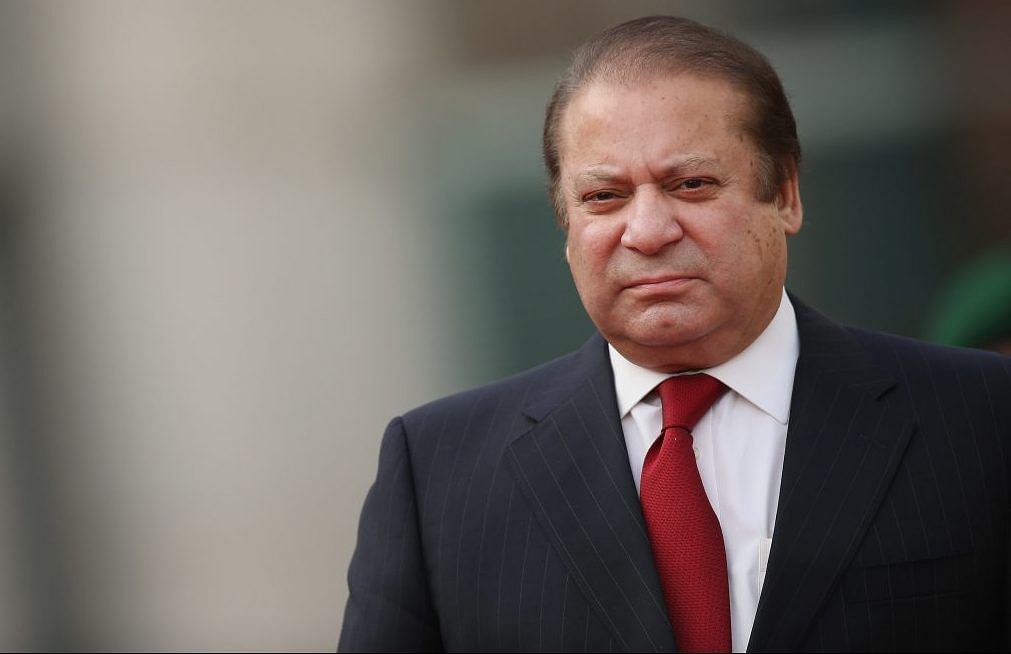
Nawaz Sharif’s celebratory return to Pakistan after several years in exile will turn into a political triumph only if the country’s military establishment, which had banished him from politics six years ago and now facilitated his recent insurrection, fundamentally changed its behaviour. So far, it seems that the establishment sees Sharif as a must—needed alternative to the generous populism of Imran Khan.
Sharif’s return makes it easier to hold elections that he might win. But history does not give reason for optimism about him being able to complete his tenure, if elected, and having a free hand in policy making. He has previously been elected Prime Minister thrice, only to be removed from office each time, without completing his term. In 1993, he was removed from office by a Presidential decree. In 1999, he was toppled by a military coup. And in 2017, he was disqualified from being prime minister by a judicial fiat.
He retained a strong support base, especially in the military’s dominant recruiting region of Punjab, throughout the last three years. But he has not seen eye to eye with successive army chiefs, several of whom were appointed by Sharif. The usual point of contention has been differences over security and foreign policies and over military leaders’ right to determine policies. The question now is, will a fourth Sharif term conclude with fatal altercation with Pakistan’s military leaders.
On the eve of the July 2018 elections that brought Imran Khan to office, the return of Sharif in not—too—distant future was predicted.. “Even if the military succeeds in installing a selected prime minister into office after the votes are cast, it will not succeed in its core objective of creating a creditable, effective, civilian façade. Sharif’s imprisonment will not end his (or his daughter’s) political careers long after the retirement of the generals and colonels who plotted his downfall.”
That is exactly what happened. The generals’ choice, Imran Khan, became greatest threat to the almighty establishment that any other politician had ever been. After he was removed from office, the former cricketer went on a rampage that threatened Pakistan’s external relations as well as domestic order. Enraged by his arrest, Khan’s cult of fans attacked military installations—something even declared enemies of Pakistani state had not done.
Unlike Sharif, and Benazir Bhutto before him Imran Khan was not a politician locking horns with the military over civilian supremacy under the constitution. He was trying to prove that his supremacy was greater than public approval for Pakistan’s military leaders and that he was stronger permanent state apparatus. The military responded with a crackdown, supported by most political elites, but given its unwillingness to impose military rule, it also needed a popular political alternative.
Sharif’s return, and the fast—track reversal of criminal charges and cases against him, is the result of the establishment’s desire to hold an election that Khan does not win. From the establishment’s perspective, Sharif would be a safer pair of hands than the narcissistic cricketer-turned-politician, given Sharif’s experience in both winning elections and governance. But the establishment’s willingness to let Sharif have another term is a reflection of some difficult ground realities.
At the time Sharif was forced into exile, Pakistani Punjab was divided between Sharif’s anti-establishment followers, who believed that fighting establishment to secure democracy was more important than fighting corruption, and Imran Khan’s pro-establishment supporters who repeated what had been the mantra of every Pakistani coup maker: Pakistan’s politicians are generally corrupt, corruption must be eliminated before democracy can function: and generals and judges have their own preferences to put the politicians in their place. (IPA Service)
The post Pakistan Army Wants Former PM Nawaz Sharif To Contest And Win Elections first appeared on Latest India news, analysis and reports on IPA Newspack.


